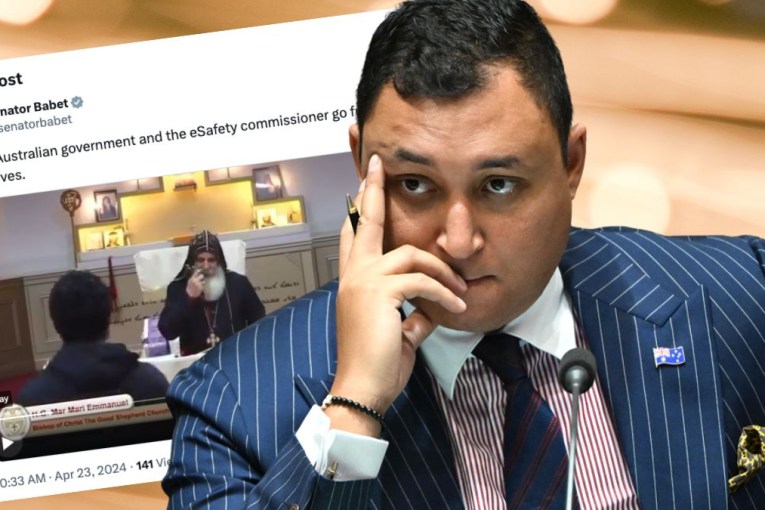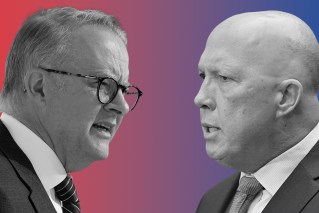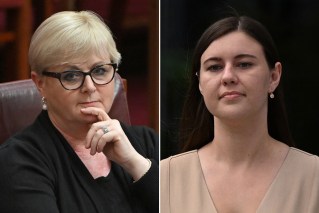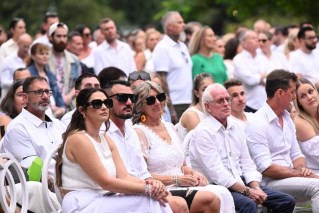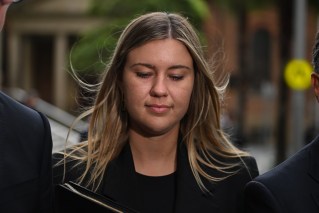Bushfire victims want Australia to know they are ‘suffering from climate change’

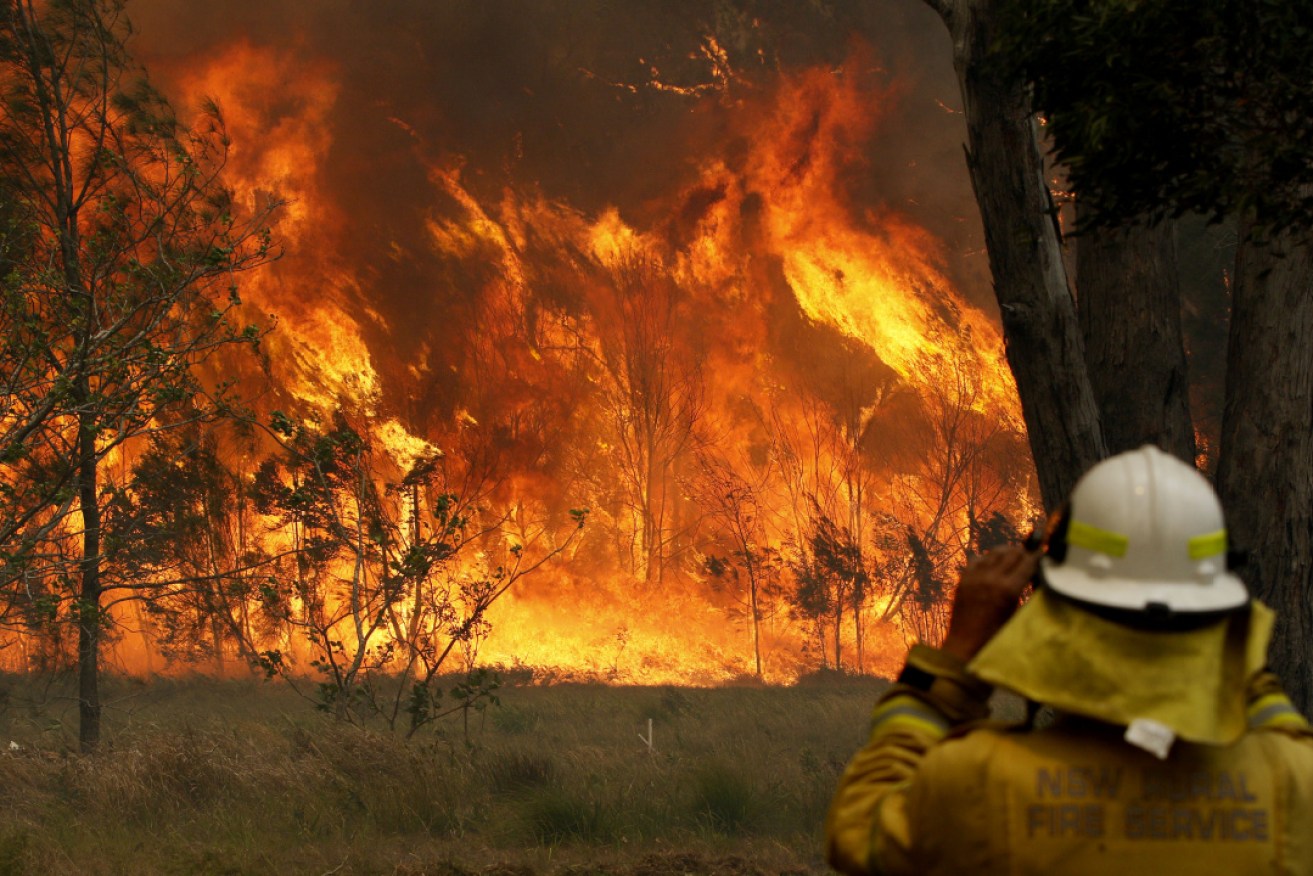
Heartbreaking and harrowing, firefighters have endured more than a month of merciless flames. Photo: AAP
Australia holds the potential to sit amongst the world’s renewable energy superpowers, but “unprecedented” bushfires across NSW reveal just how lacking the government’s climate change policy is.
Days after thousands of scientists from across the globe declared humanity was facing a climate emergency, scores of bushfires tore through NSW, so far killing at least three people.
It appeared Prime Minister Scott Morrison wanted to steer clear of another climate debate, dodging the topic on Saturday as fears grew more people may have perished.
But a local mayor, climate change policy expert, firefighter and resident whose father’s home was destroyed in the early-season fires have all told The New Daily they want climate change at the centre of the conversations about the deadly emergency.
Glen Innes Severn Council’s mayor, Carol Sparks, who lost her home, said: “There is no doubt about it, we are suffering from the effects of climate change and global warming.
“The trees are dying and they are so dry and volatile,” Mr Sparks said.
“We’ve got no water in our dams, no water in our rivers, no water in our creeks.”
By Saturday evening, three people had been confirmed dead. One victim identified was 69-year-old grandmother Vivian Chaplain.

Vivian Chaplain died after trying to protect her property. Photo: ABC/Supplied
Ms Chaplain, who was trying to save her home and animals, was rushed to hospital after being found unconscious with burns to her half her body, NSW Premier Gladys Berejiklian revealed later that day.
She was one of two people who perished in the Kangawalla fire which raged east of Glen Innes in NSW. A third victim died in a burnt-out home, north of Taree.
Mr Morrison seemingly dodged questions on Saturday about whether climate change was to blame for the out-of-control fires in that state.
When questioned directly about climate change, he answered: “My only thoughts of the day are with those who have lost their lives and their families, firefighters who are fighting the fires, the response effort that has to be delivered and how the Commonwealth has to respond and support those efforts”.
Our thoughts and prayers are with those who have been so directly and horribly impacted by these fires. https://t.co/XvgsLv4eht
— Scott Morrison (@ScoMo30) November 9, 2019
Other parts of the country were not immune to the dangerous and unpredictable behaviour of fires.
Emergency level fires were also threatening homes on Queensland’s Sunshine Coast and in Western Australia’s Wanneroo, 20km north of Perth CBD.
Meanwhile, Mount Hotham in Victoria’s Alpine region reached -1 degrees on Saturday and is forecast to hit -3 on Sunday.
It followed Friday’s hail storms in Melbourne and snow in parts of Tasmania.
A mate just sent me these photos from near Port Macquarie scary stuff #NSWbushfires pic.twitter.com/rK59XpPeDP
— James Nichols (@JamesNichols73) November 8, 2019
Back in NSW, Ms Sparks told how she was evacuated from her home on Friday and later told it was most likely destroyed in the Kangawalla fire. She said climate change warnings were not being taken seriously.
“The people that are leading us at the moment are not addressing the serious implications of what the scientists and science is saying,” Ms Sparks said.
Dr Imran Ahmad from the Climate Change Institute at the Australian National University said the NSW fires give “clear evidence” that climate change is increasing the frequency and severity of bushfires.

Bushfires burned throughout residential areas northeast of Sydney. Photo: Kelly-Ann Oosterbeek/Facebook.
The human and financial cost of such extreme fires is “horrendous” but there’s not been much evidence of increased climate policy under Morrison’s government, Dr Ahmad said.
Dr Ahmad is concerned about the elderly and other vulnerable people’s preparedness to deal with the increasing size and intensity of bushfires.
He said Australia is “very well placed to deal with climate change” and we “can become a renewable energy superpower”.
“The investment requirement on climate change seems marginal if you look at the impacts that climate change is having on communities.”
About three weeks ago, Carol Duncan from Newcastle received a text message from her dad that read, “all gone”.
The Newcastle City councillor and former ABC journalist would later learn that her father’s home had been destroyed by fires that swept across northern NSW.
We're told that natural disasters will become more frequent & more intense with climate change. Here's my father's home being destroyed by bushfire a few weeks ago for your consideration. pic.twitter.com/llYwobhFPJ
— Carol Duncan (@carolduncan) November 6, 2019
Labelling the unfolding bushfire emergency as a “terrifying beginning” to the fire season, Ms Duncan said she was “deeply saddened that many more people have lost their homes, and that more people have died”.
She blamed the Morrison government’s inaction on climate change for exacerbating the threat of more fires.
“I’m disturbed that our government has ignored – and continues to ignore – the repeated calls for genuine climate action from our community, and from the scientists who have warned us that climate change will make bushfires and other natural disasters happen more frequently and become more intense,” Ms Duncan said.
“We can’t continue to pretend it’s unrelated,” she said.

Her father’s home in the aftermath of the fire. Photo: Carol Duncan
Local RFS captain Paul Johnston who was battling the blaze near Nymboida River said he faced an “unprecedented” bushfire.
“I don’t think that I can articulate exactly what I felt but this is something that’s never happened to this degree – certainly here,” he told the ABC.
Above-normal temperatures and below-average rainfall will continue to dominate the coming months, NSW RFS Commissioner Shane Fitzsimmons said.
“We have got the worst of our fire season still ahead of us. We’re not even in summer yet,” he told reporters on Saturday.

Mr Mullins is recently back from California where he spoke with firefighters battling wildfires there. Photo: Greg Mullins
Climate change has made fires more likely and “when they start they’re more likely to get out of control”, said Greg Mullins, Climate Councillor and former NSW Fire and Rescue Commissioner.
“Year on year our fire seasons are starting earlier so the official fire danger season in NSW which in legislation was based on 100 years of weather observations is October 1,” Mr Mullins said.
“In the last two years, we had fires in the first or second of August.”
“So if this evidence isn’t enough to convince people, I don’t know what is.
“But people like me who have been doing this for decades are just shaking our heads and we have a sense of doom.”
